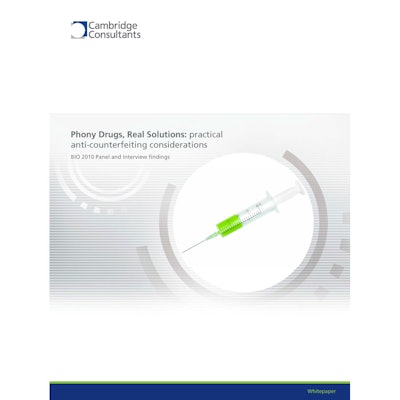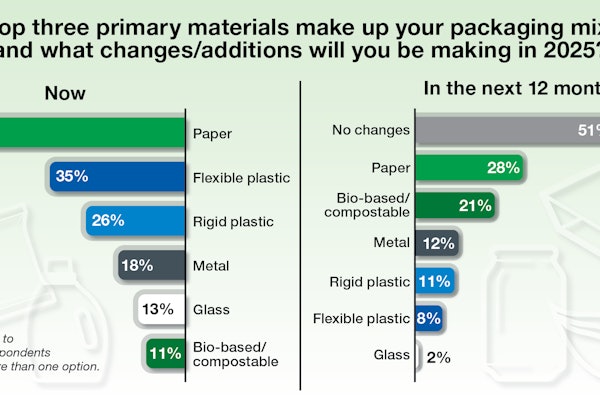
Phony Internet pharmacies and other illegitimate outlets are driving the massive counterfeit medicine market to consumers worldwide, according to a recent report by Cambridge Consultants. The technology product design and development firm interviewed leaders from pharmaceutical and biotech businesses, as well as technology developers and industry bodies. As part of the report, Cambridge Consultants identified the need for more consumer education, along with new and improved regulatory standards to address counterfeit medicine. The report also included recommendations for solutions that businesses can use to address the global drug counterfeiting epidemic.
“Although there has been some debate around the size of the worldwide counterfeit medicine market that has been estimated at $75 billion and upward, one cannot dispute that the unregulated growth of Internet pharmacies will only contribute to this problem,” said Rainuka Gupta, group manager of medical technologies at Cambridge Consultants. “Our research concluded that this presents threat to consumers and the industry alike. Easier access to cheaper drugs has exposed consumers to dangerous mixes of fake drugs and placebos. Meanwhile, pharmaceutical companies risk losing credibility and regulatory bodies risk losing control with the spread of these counterfeit medicines. As an industry, we need to better educate consumers on the threats associated with fake drugs, but we also must work together to coordinate and implement technologies that can detect and deter counterfeiters.”
Already a global problem, especially in Africa and Southeast Asia where the World Health Organization (WHO) has estimated that about 50% of medicines could be fake, counterfeit drugs have also been flooding the U.S. market. In 2009, the U..S Customs and Border Protection Agency stated that the value of seizures of counterfeit pharmaceuticals had increased by 500% over the previous three years. Despite increased efforts to stop the flow of counterfeit medicine, the growth of Internet pharmacies has exacerbated the issue and put consumers at further risk. According to LegitScript, which monitors Web sites that facilitate the sale of prescription drugs, approximately 97% of the nearly 50,000 pharmacy Web sites in its database do not meet their standards for being verified as a legitimate pharmacy (licensed pharmacy, appropriate registrations, requiring a valid prescription, etc).
“As an advocacy organization, we were pleased to participate in this research and we thank Cambridge Consultants for bringing attention to the growing issues around the counterfeit medicine market,” said Andrew Emmett, managing director for science & regulatory affairs for Biotechnology Industry Organization (BIO). “While there have been recent improvements in enforcements and regulations, there continues to be a need for a comprehensive private-public response to criminal counterfeiting focusing on education, legislation, enforcement, investigation, and international collaboration.”

























